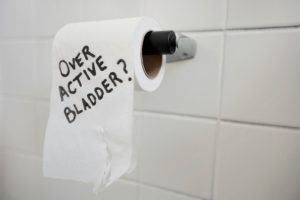 If you have an overactive bladder, chances are that you’ve tried drugs and got little to no relief. This is not surprising, as in many cases, they do little or nothing to address the real cause of your overactive bladder. The best way to attend to an overactive bladder is to find out the cause and then get relief by addressing it. There are many reasons for an overactive bladder and the remedy varies accordingly. Let’s look at some of the common causes and simple ways to manage your overactive bladder. (The most potent bladder control remedy is in your kitchen cupboard.)
If you have an overactive bladder, chances are that you’ve tried drugs and got little to no relief. This is not surprising, as in many cases, they do little or nothing to address the real cause of your overactive bladder. The best way to attend to an overactive bladder is to find out the cause and then get relief by addressing it. There are many reasons for an overactive bladder and the remedy varies accordingly. Let’s look at some of the common causes and simple ways to manage your overactive bladder. (The most potent bladder control remedy is in your kitchen cupboard.)
Medications: Certain medications for other conditions can cause bladder irritation and lead to an overactive bladder. If this is the case, speaking to your doctor and changing the medication may be all that’s required.
Advertisement
Obesity: Obesity puts unnecessary pressure on your bladder and makes it overactive. The solution to this is simple, but it takes a lot of effort and discipline. Effective weight management will go a long way in taking the pressure off the bladder and resolving the issue at hand. (Get back the strength you once had.)
Diabetes: This dreaded condition is often associated with a sudden and uncontrollable urge to pee. High blood sugar can affect the ability of the kidneys to process excess glucose—meaning that more urine is produced as a result. The best way to deal with this is a well-planned diabetes diet and exercise routine. Once blood sugar is under control, the bladder issues will recede too.
Dehydration: This might come as a surprise, but if you’re dehydrated, your urine becomes more concentrated and acidic. This irritates the bladder, causing that “gotta go” sensation. The key is to drink just enough water so that your urine is straw-yellow in hue—this provides enough hydration to dilute the urine and avoid irritating the bladder while not having to run to the bathroom every 20 minutes.
Urinary tract infections: According to the Mayo Clinic, both urinary tract infections (UTIs) and kidney stones cause bladder irritation. A UTI is usually distinguished by urinary urgency as well as pain and burning when urinating. If the UTI is severe, an antibiotic treatment may be necessary. However, if the infection is mild, flushing it out by drinking lots of water may be all that’s needed. If the cause of the overactive bladder is kidney stones, getting the stone removed may be the way out. (The very worst thing you can do for your bladder is nothing.)
Weak pelvic floor muscles: With age, our bladder muscles and pelvic floor muscles naturally decline. This could be due to varying factors like stress, hormonal imbalance, or even silent inflammation. Weak bladder muscles are more common in women who have had children, as the bladder muscles are stretched during pregnancy.
Advertisement
The best way to strengthen these muscles is to do a few simple at-home exercises. To exercise your pelvic floor muscle, squeeze and hold them like you’re trying to stop the flow of urine. Hold and squeeze for 10 seconds, then rest and repeat for a set of 10 to 15 contractions a day. Doing these exercises on a regular basis can help tighten the muscles of the pelvic floor and give you great relief from an overactive bladder.
Having said that, it’s important to note that in many cases (in fact, in almost 35 percent of cases), the leaks and strong urges to pee resolve in women within a year with no treatment. So, before you reach for those drugs, try exercise and rest first.
Related: Overactive bladder diet: Foods and drinks to manage bladder health
